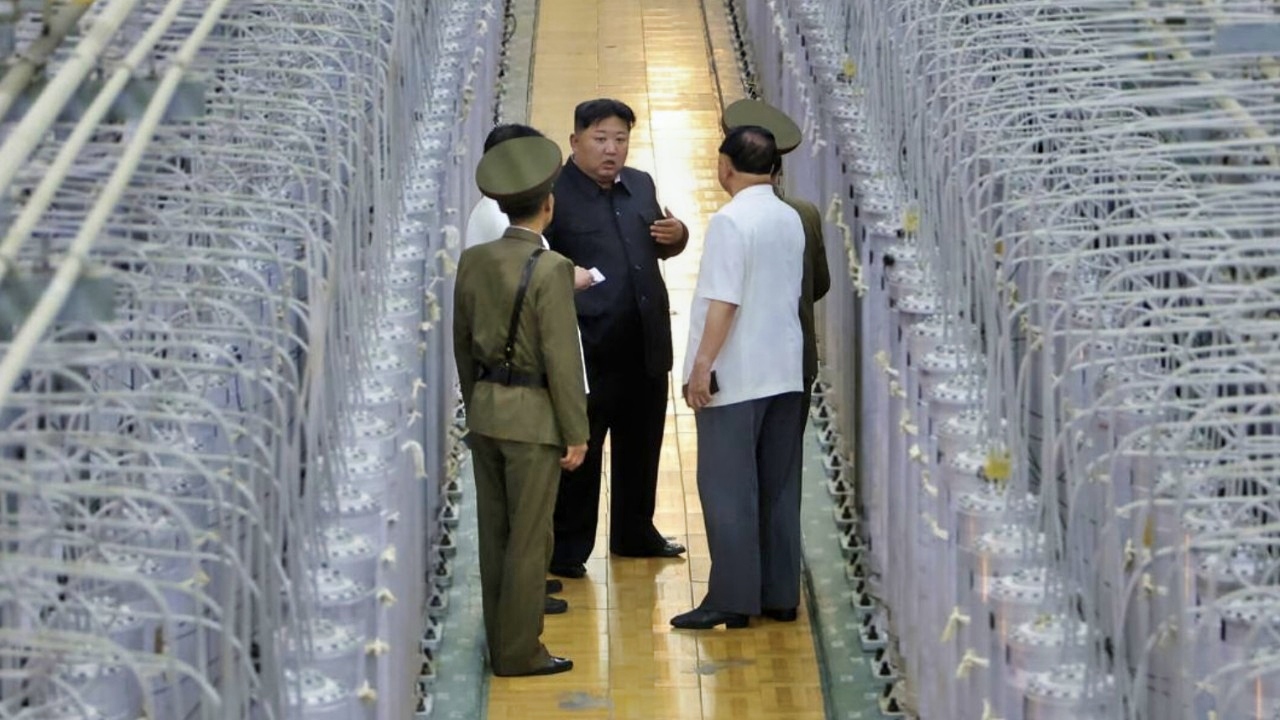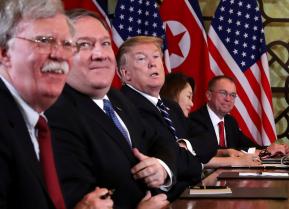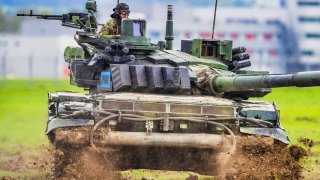Kim’s Costly Gamble: Why North Korea’s Ukraine Deployment Could Backfire
North Korea’s deployment of combat troops to Russia for Ukraine's frontlines reveals Kim Jong-un’s desperation for cash but presents significant risks for his regime.
North Korean leader Kim Jong-un is sending North Korean combat troops to Russia to attack Ukrainian forces. This is an extremely risky action on his part, suggesting that he is desperate. While these troops have years of North Korean military training, they have no modern combat experience and are getting little preparation from the Russians. If they are committed to mass assaults on Ukraine’s front line, that could be disastrous for the troops and a problem for Kim.
Kim likely understands some of the risks he is running. But prompt action by South Korea, Ukraine, and the United States could amplify those risks and discourage Kim from continuing his combat troop commitments. A failure to act could jeopardize the cohesion of the Ukrainian front lines and could even lead to a strategic breakthrough for the Russian forces which could become a disaster for Ukraine.
If Kim perceives that his forces have succeeded, he may become emboldened to test his military forces against South Korea.
The North Korean Force Deployment
North Korea has reportedly deployed 12,000 combat troops to assist Russia in expelling Ukrainian forces from Russian territory in the Kursk region. This Ukrainian incursion into Russian territory has been a serious embarrassment for Russian President Vladimir Putin. While Russian forces have slowly pushed Ukraine’s forces back, Putin likely hopes that the addition of the North Korean forces will defeat Ukraine's offensive and perhaps even lead to a breakthrough in Ukraine's defensive line.
Interestingly, the Russians have dressed the North Korean forces in Russian uniforms and given them fake Russian identifications, suggesting that Putin wants it to appear that Russian forces, not North Korean forces, are solving this Ukrainian invasion problem.
The fact that Ukraine was able to make a significant incursion into Russia with its much smaller military could eventually lead other nationalities to consider comparable actions against Russian aggression. Although Putin has sought to downplay the significance of Ukraine's offensive, it could over time raise questions in Russia about Putin's leadership performance.
Meanwhile, Kim has benefited from Russian assistance. The North Korean economy is in terrible shape and the Kim regime is unable to independently meet the needs of the North Korean people. These inadequacies raise questions about the quality of Kim's leadership and the viability of the North Korean juche philosophy, which roughly translated means self-reliance.
Fortunately for Kim, his father and grandfather spent decades building and stockpiling artillery and other munitions well beyond North Korea’s needs for potential conflict on the peninsula. Kim spotted Putin's need for artillery munitions and started selling his outdated, excess stocks to Russia in exchange for hard currency, food, and military technology. Kim has used the hard currency in part to improve the lives of at least some of his people, especially the elites, presumably reducing discontent with the regime.
Kim has reportedly shipped millions of artillery shells, munitions , and weapons to Russia, enabling Russia to continue its advances against Ukrainian forces.
Of course, many of North Korea’s artillery munitions produced in the 1960s, 1970s, and 1980s which had been largely stored underground are in questionable condition. At least some did not work, and some exploded when fired, causing Russian casualties. However, many did work, making Russia willing to pay for what North Korea shipped.
The quantity of the munitions that Kim was prepared to send to Russia has likely been largely dissipated, which means Russian hard currency payments will soon be significantly reduced. This means that the improvement in the lives of some North Koreans could be ending, likely increasing instability above what it was before the Russian arms sales began.
Kim therefore needed to find another way to acquire hard currency. So now he is selling North Korean combat personnel to Russia for something like $2,000 each per month, almost all of which the North Korean regime is likely keeping. The problem with this approach is that Kim is probably not sending personnel from unreliable families to Russia, fearing that they would defect. Kim likely felt he could afford to send soldiers from politically elite families.
The North Korean combat forces have reportedly received relatively little training on Russian military operations. That suggests that Russia is planning to use many of them for mass assaults on Ukraine's frontline positions, where many Russian conscripts have died. Russia has reportedly been suffering 1,200 casualties per day, an extremely large number.
If Russia employs these tactics with the North Korean forces, the lack of adequate North Korean medical services and supplies will exacerbate the situation. Casualties will undoubtedly anger some number of North Korean families that have been relatively supportive of the regime. Moreover, Russia is unlikely to pay for soldiers who are either dead or wounded, implying that Kim will need to send more troops over time to continue the flow of hard currency to his regime.
Kim reportedly attempted to prevent the families of the dispatched soldiers from learning about their deployment to Russia, but this effort failed. So North Korea is seeking to isolate their families in the North to avoid any potential rebellion.
Needed Responses
It is reported that South Korea is already sending some information about the deployment into North Korea, which may be stoking opposition and instability. If this information campaign were expanded and augmented by U.S. efforts, many more North Korean families would be alerted to the selling of their sons to Russia.
It is also reported that South Korea is contemplating sending some of its military personnel to Ukraine for observation and other non-combat purposes.

Both South Korea and the United States should deploy experts in psychological operations to transmit messages to the North Korean troops to induce defections. Some North Korean defectors living in the South already are seeking to join such a deployment. Any new defectors would likely provide valuable insights into the situation in North Korea, something that Kim would hate: he does not want the outside to know how bad things are there.
In addition, South Korean and U.S. personnel should be transmitting information about the wider world to the North Korean soldiers, anticipating that if they ever get back to the North they will pass on at least some of it to their families. This could include K-pop and other items of interest to the average young North Korean.
Kim will hate this even more. He has called K-pop a vicious cancer that could cause his regime to collapse.
At some point, the loss of control over the North’s information environment may even lead Kim to feel that it is too risky to send more combat forces to Russia. This would be a good outcome for South Korea, the United States, and especially Ukraine.
But if North Korean forces help Russia achieve a breakthrough, that could be dire for Ukrainian forces. Such a situation could also strengthen the Kim regime at home and perhaps even convince Kim that he could successfully carry out limited attacks on South Korea, a truly unwanted outcome.
About the Author: Dr. Bruce W. Bennett
Bruce W. Bennett is a senior international/defense researcher at RAND, a nonprofit, nonpartisan research institution. He works primarily on research topics such as strategy, force planning, and counterproliferation within the RAND International Security and Defense Policy Program.
Image Credit: Creative Commons and/or Shutterstock.


